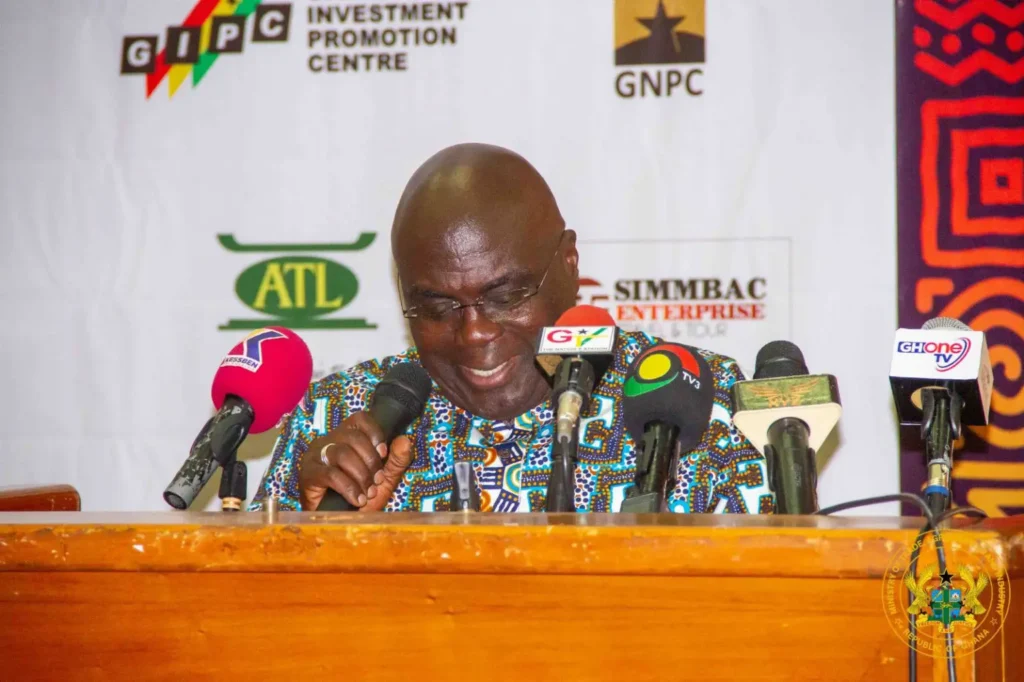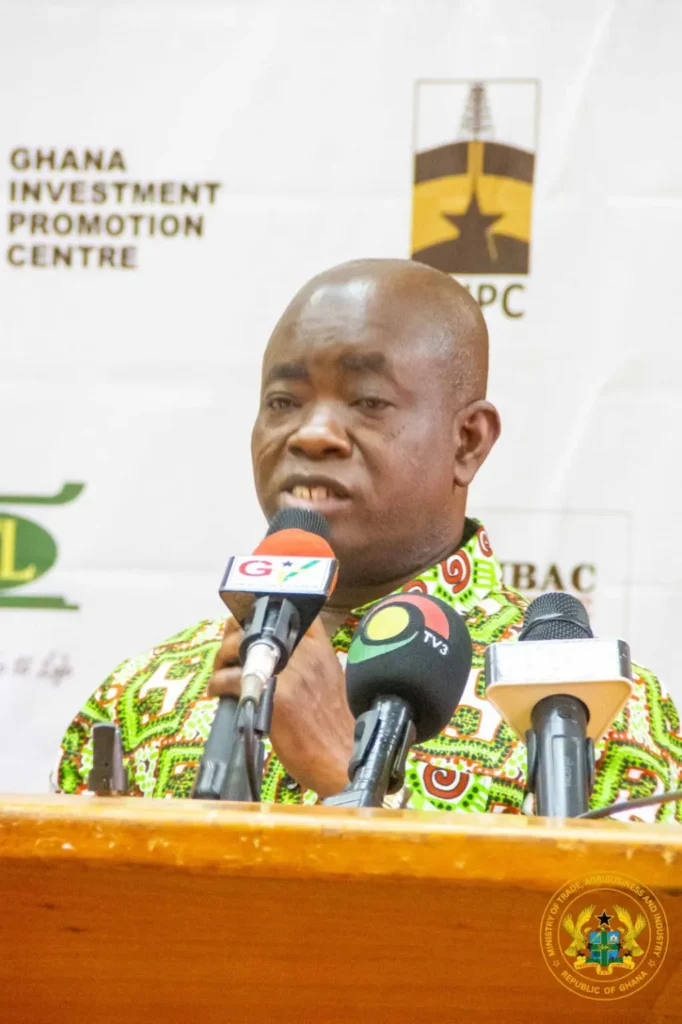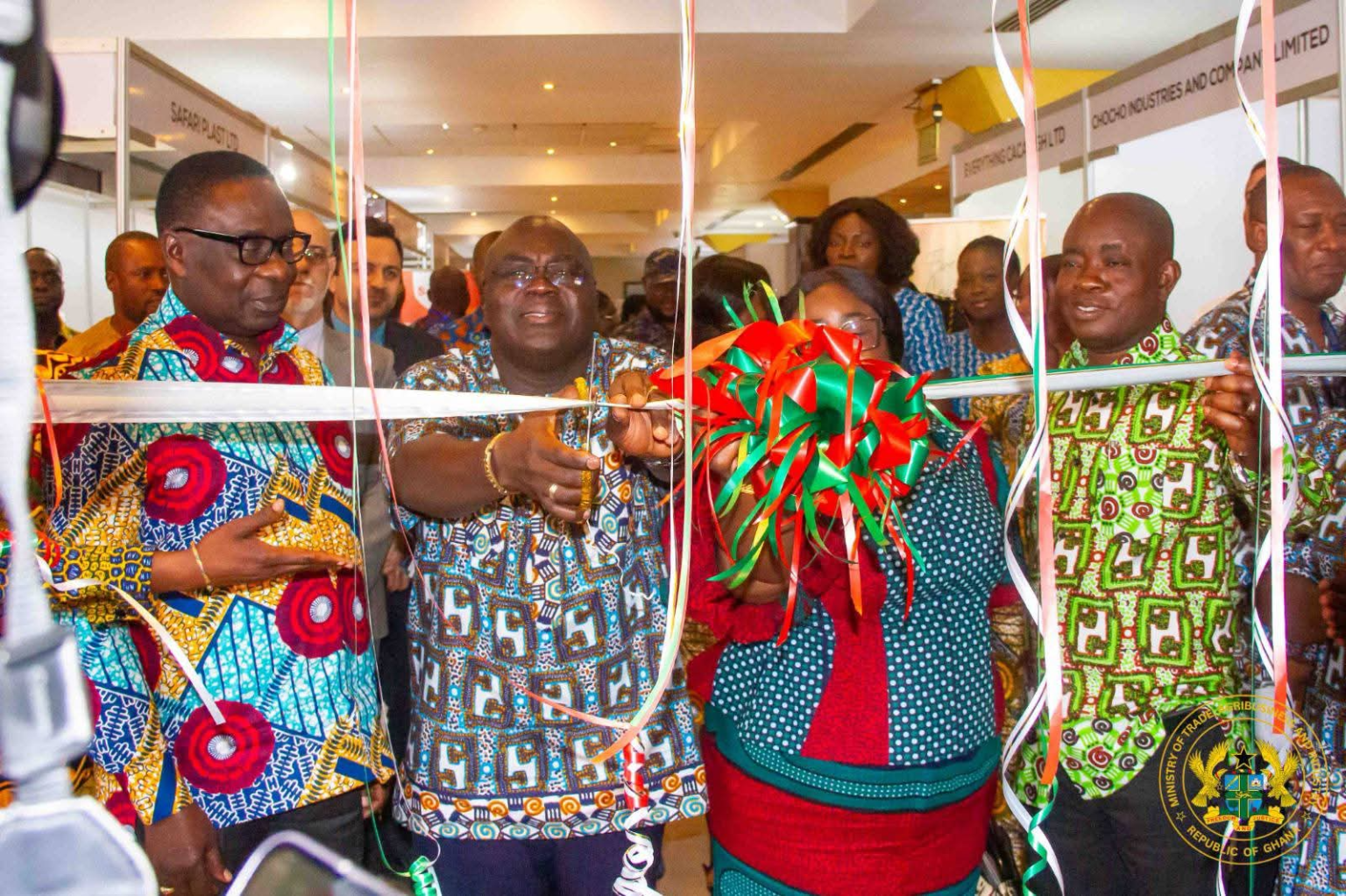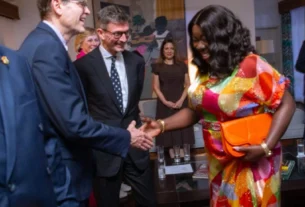Read also:
- NDC Parliamentary Primaries Underway in Tamale Central.
- President Mahama Receives Invitation from Senegal’s President Faye.
- Ghanaian Envoys Urged to Champion Local Products Abroad
- Ghana Government Gives MultiChoice 14 Days to Reduce DStv Prices.
- MANI Africa’s Kofi Bentil Weighs in on Chief Justice’s Removal.
The 4th edition of the Made-in-Ghana Bazaar has opened at the Accra International Conference Centre, emphasizing the importance of promoting local goods and championing Ghana’s export agenda. Chief of Staff Julius Debrah underscored the urgency of President John Dramani Mahama’s vision for an “accelerated export development drive,” stressing that no country can thrive on an import-dependent economy.

Debrah urged Ghanaian ambassadors and foreign representatives to actively promote Made-in-Ghana products on the international stage, citing Ghanaian chocolate as a potential game-changer for the country’s export fortunes. He also highlighted the significance of cultural storytelling in marketing, recalling how an American visitor was captivated by the history behind a Ghanaian stool and Kente cloth.

Deputy Minister for Trade, Agribusiness, and Industry Sampson Ahi described the Bazaar as a symbol of Ghana’s innovation, resilience, and global aspiration. This year’s theme, “Championing Economic Diplomacy: Connecting Producers, Markets, and Opportunities,” reflects the critical link between trade diplomacy and trade policy in advancing Ghana’s export and industrial transformation agenda.
A comprehensive brochure of Made-in-Ghana products and export information will be distributed through Ghana’s Missions worldwide to help businesses align with international demand trends and gain greater market access. Institutions like the Ghana Export Promotion Authority, Ghana Investment Promotion Centre, and Ghana EXIM Bank are supporting export-ready businesses, attracting investment, and financing Ghanaian enterprises.
Ghana’s export sector surged to $13.7 billion by June 2025, driven by strong performance in gold, cocoa, and oil. The country aims to increase its non-traditional export earnings from $3.5 billion annually to at least $10 billion by 2030, through value addition, industrial expansion, and fixing long-standing trade bottlenecks.




